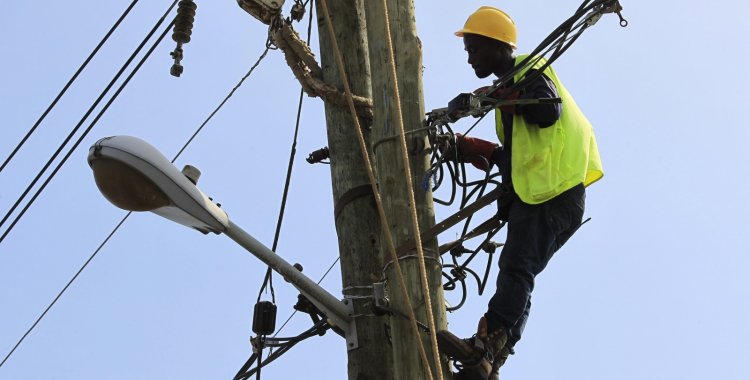"Oil exploration should not be seen as a seven-headed issue. And, once again, we will not give up on using our natural resources, as long as their exploration is associated with the best international practices, with regard to environmental protection and the need to provide our citizens with a better life", stated Arlindo Bota Manuel Carlos, in an interview with Lusa in Estoril, on the sidelines of the 2nd CPLP Energy Conference, which ended on Wednesday.
According to the minister, "without giving up all the resources" it has, Angola, as a sovereign country, will "take the decisions that prove to be most sustainable" for its economy and "most appropriate to (...) cooperation agreements with friendly countries, including Portugal, a friend of Angola", an indirect allusion to the participation of the Portuguese company Galp in oil exploration and production in Angola.
Assuring that oil resources will continue to be explored, Arlindo Bota did not want to give deadlines for new concessions or new possible research areas.
Among the countries of the Community of Portuguese Language Countries (CPLP), he also highlighted Brazil.
"Without disrespect to others, particularly Portugal, the Federative Republic of Brazil has been one of the important partners of the Government of Angola" also in the sector, he said.
Highlighting that Angola has developed energy projects "without the use of fossil fuels", he said that the country would like to develop other energy projects with private partners, such as natural gas or combined cycle plants.
"Angola has a notable gas reserve" and already has infrastructures that use this "clean" energy source to produce electricity, with a combined cycle plant in the north of Angola, with a capacity of 750 megawatts, he stressed.
According to the governor, Angola is considering "the use of all clean sources that compete for the public electricity service, which prove to be reliable, low cost and of continuous use".
Therefore, the country is "considering a model that is slightly more open to the market, considering the possibility of private entities joining this exercise. The law provides for this and opens up greater competitiveness, and these plants may be developed by these private entities, as long as they have concession contracts for the necessary gas volumes secured", he emphasized.
According to Arlindo Bota, the government has already been approached by "several" private entities, "expressing interest" in this type of project. However, it has not yet received "feasibility studies", and without these it will not be able to make decisions.
He assured "the country's firm commitment" to continue "with a much greener matrix" and emphasized that Angola already has "a matrix where 64 percent of its capacity is renewable, of which 60 percent is hydroelectricity and four percent solar".
The country's 60 percent hydroelectric capacity, he specified, does not include the 2,172-megawatt Caculo Cabassa dam, which is expected to be completed in the coming years, nor the four megawatts associated with solar photovoltaic technology in ongoing projects, which will primarily benefit remote and disadvantaged communities "and which contribute to the eradication of poverty in Angola".
According to the data cited by Arlindo Bota, Angola currently has "an electrification rate of 44 percent", but the country aims to reach a 50 percent electrification rate by 2027.
He made a point of highlighting that, in 2015, Angola had a diesel fuel consumption equivalent to 1,364 million liters and greenhouse gas emissions of 3,547 million tons of carbon dioxide. In 2024, Angola reduced its use of diesel to 430 million liters per year, "a substantial reduction of 1,119 million liters," he stressed.
"The oil economy creates conditions for the launch of other sources, which contribute to a better contribution. And today we are bringing electricity to areas of our territory where, before the 25th of April, the former colonial entities had never brought electricity, and with a much larger population than they had at that time," he highlighted.







